
(Chamaesyce maculata (L.) Small)
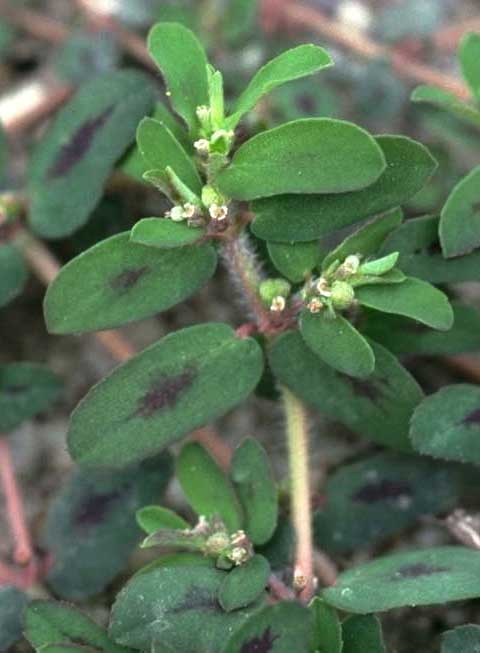
Chamaesyce maculata habit [Top]
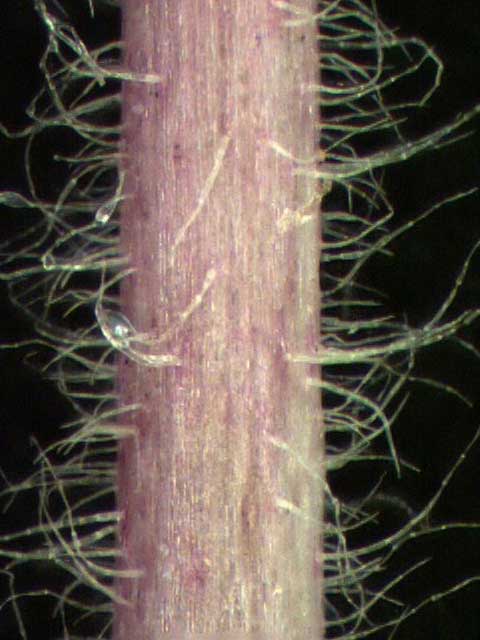
Chamaesyce maculata stem [Top]
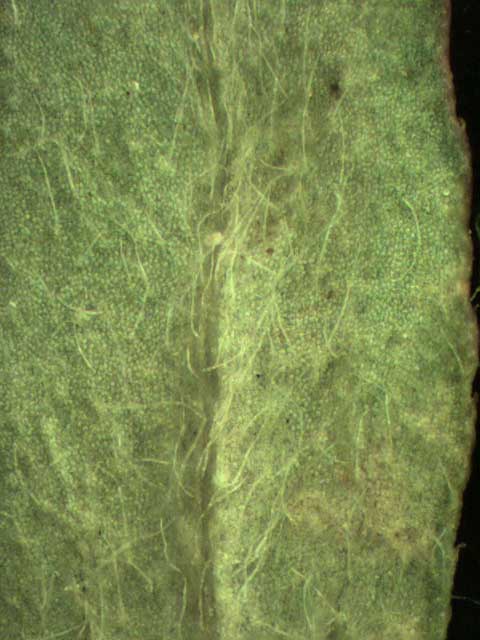
Chamaesyce maculata leaf [Top]
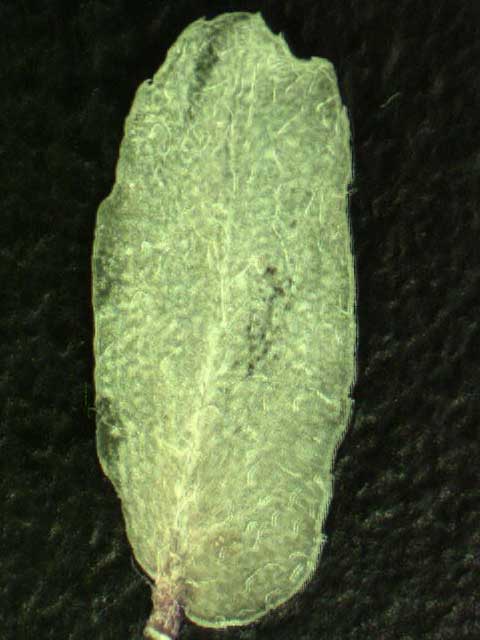
Chamaesyce maculata abaxial leaf surface[Top]
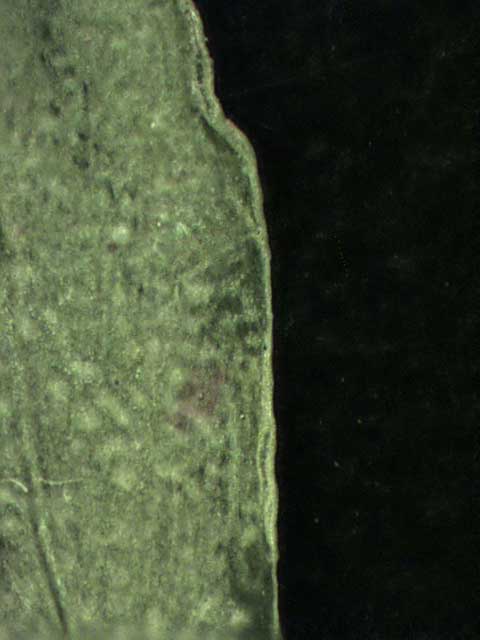
Chamaesyce maculata leaf margin[Top]
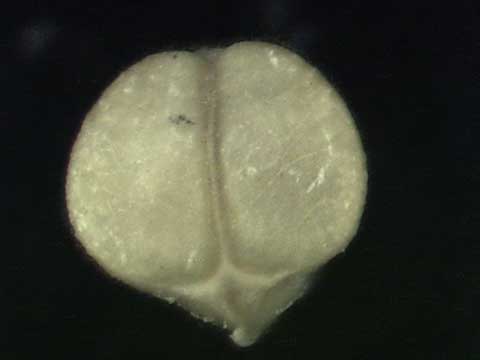
Chamaesyce maculata fruit [Top]
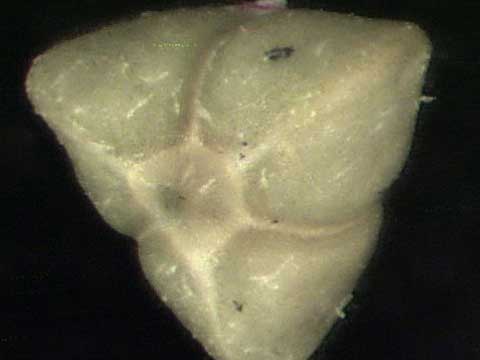
Chamaesyce maculata fruit [Top]
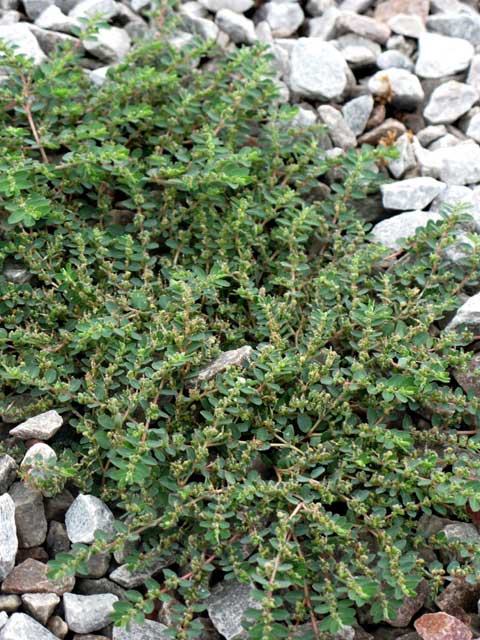
Chamaesyce prostrata habit [Top]
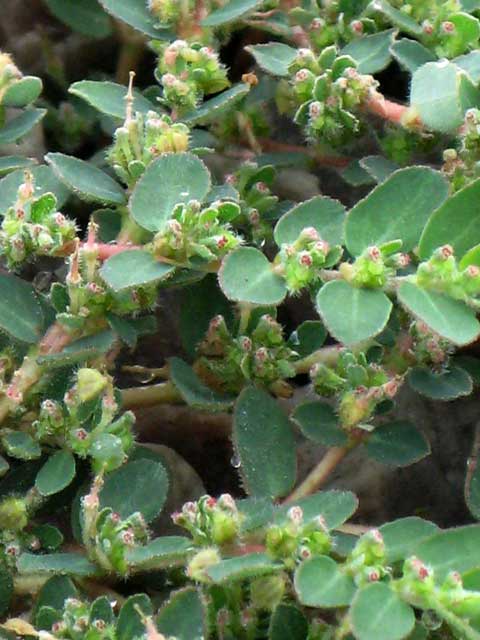
Chamaesyce prostrata habit [Top]
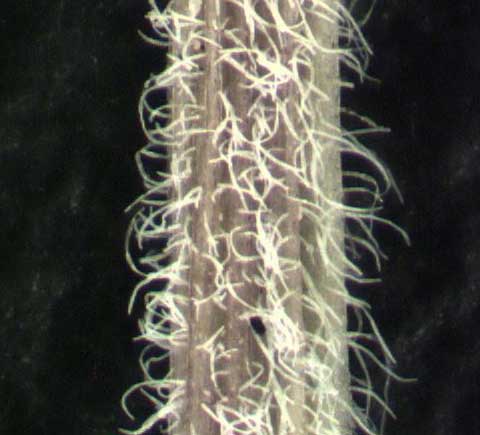
Chamaesyce prostrata stem [Top]
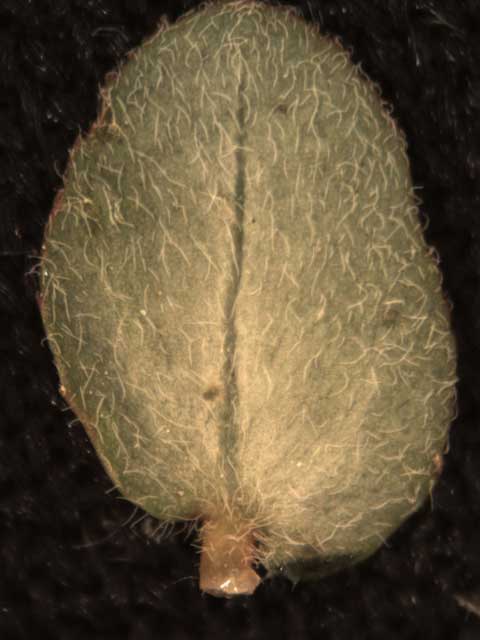
Chamaesyce prostrata abaxial leaf surface [Top]
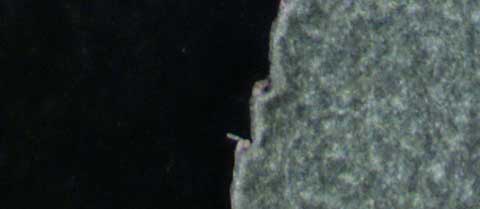
Chamaesyce prostrata leaf margin [Top]
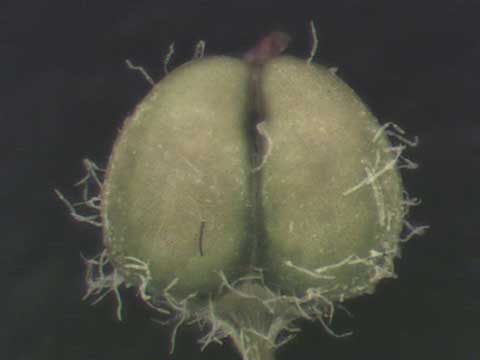
Chamaesyce prostrata fruit [Top]
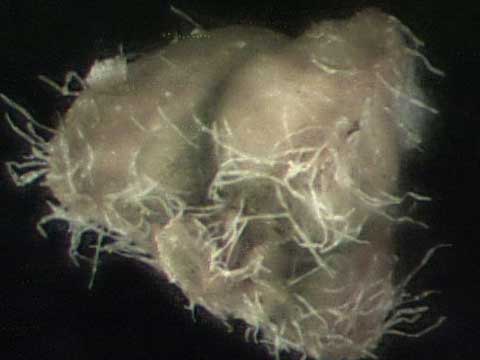
Chamaesyce prostrata fruit [Top]
G
G
F
G
F
G
F
G
G
G
G
F
G
Spurges (Chamaesyce spp., Euphorbiaceae) are summer annual weeds that flourish in warm weather, but in warmer climates some can persist into late fall. Plants flower in summer and early fall then die after frost. Flowers are greenish-white. Spurges are some of the most common warm-season weeds in container nurseries. Various species are important in different nurseries because of different weed introductions, production practices, and weed management strategies. Each exudes a milky sap when stems or leaves are broken.
Control Guidelines for Spurges: Because spurges flower when young and have little or no seed dormancy, weed populations can increase rapidly. Remove plants when young to reduce seed production. They are time consuming to hand weed due to the number of seedlings that form. Some species may forcefully discharge seeds. Spurges are well controlled by most preemergence nursery herbicides containing a dinitroaniline, but less well controlled by oxadiazon or oxyfluorfen.
Spotted and Ground Spurge (Chamaesyce maculata, C. prostrata, and others): These similar spurges have prostrate to ascending stems with round or oblong leaves; some have a large dark spot on the leaf blade but the presence or absence of the dark spot is not diagnostic. Seedlings are very small but will flower when young. A prolific seeder; seeds have limited or no dormancy and germinate quickly. These are the most common summer annual weeds in container nurseries. [TOP]